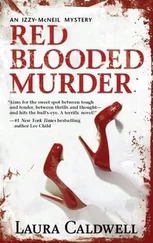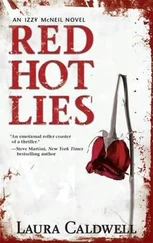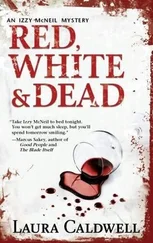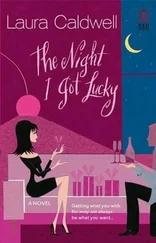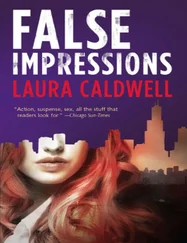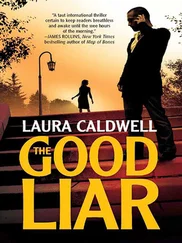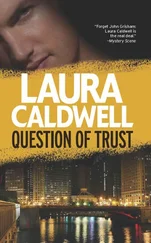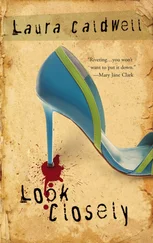Her refrigerator, as well as her cupboards, was only spottily inhabited, aside from the supplies she’d bought the other night for the chocolate torta—the one she’d never made. Neither she nor Layla was particularly interested in grocery shopping lately. Or food. But she knew she should eat. She looked at the random contents of the fridge—ketchup, eggs, a slightly shriveled pear, a bottle of grapefruit juice, ground flax seed, a folded piece of foil with an old tortilla in it, half a carton of graying mushrooms, a few teaspoons of milk in the bottom of a carton, and a container of leftovers Layla must have brought home from a restaurant. She opened it—half-eaten strip steak. Where had Layla gone and ordered this? She looked at it a moment longer, then put it on the counter.
Amanda.
Amanda.
Amanda.
Valerie tried to keep her friend at bay, tried not to let the memory ravage her. But everything led her back to Amanda. To Bridget. Her life had been led with them, next to them, for so long.
She knew she had to eat. She let herself think of Amanda then, tried not to let the memory cut her. What would Amanda do?
Like her, Amanda had loved to cook. She was always reading recipe magazines, taking classes at the Chopping Block or asking Valerie to teach her one of the Mexican dishes she had learned from her father.
If Amanda had been standing here at her fridge, what would she do, Valerie asked herself?
She permitted herself a short laugh. Amanda, whom they often called “Demanda” because she always knew what she wanted, would put her hand on her hip and consider the food and the leftovers. She would be wearing designer jeans, a casual shirt and lots of the blingy accessories she loved and pulled off with aplomb. She would have said something like, “Don’t you have any potatoes? What about some fresh herbs?” Then she would have turned around before Valerie even answered and said, “Never mind.”
And then what would she have done?
Valerie looked at the contents of the refrigerator again and concentrated in a way she knew Amanda would have. She scanned all the random bits, putting them together in different ways.
She took out the tortilla, and steamed it back to life. She cracked open a couple of eggs and whipped them with the milk, then scrambled them. She sliced the strip steak into thin ribbons and sautéed them with the mushrooms and garlic. Then she put everything in the tortilla, wrapped it tight the way her father had taught her, dug some salsa from the back of her refrigerator and sat down with her steak-and-egg burrito.
“Thanks, Manny,” she said out loud to the silent house. “Manny” was the other nickname Amanda had. One only Valerie used. She couldn’t even remember how it had started.
As Valerie took her first bite, she heard the front door open and footsteps in the hallway. She felt herself smile and her face open up, as only one thing could make her do so these days. “Hello, Layla.”
Her coltish, beautiful daughter smiled as she entered the kitchen, then came forward and kissed her on the cheek. Layla slid her tall frame into a chair.
“How are you doing, little one?” Valerie asked, even though Layla wasn’t little anymore. Far from it.
Layla looked worried. She always looks worried now. How horrible for her child to have to agonize about her. It was what Valerie had hoped to avoid as a mom. But there was no way around it, and the truth was that she appreciated the concern. She had learned to relax around her daughter, to let Layla see her frailties. They had been through so much.
Layla didn’t answer the question. “How was today?” Layla asked.
Layla had three classes that day at DePaul, and although she’d been in court every other day of the trial, Valerie had refused to let her miss school.
“Today…” Valerie dialed her mind back, saw Maggie Bristol facing the courtroom. She liked the spitfire spirit of that girl. Then she saw Izzy McNeil and that tiny pinpoint of light got a little bigger. She wanted to talk to her, to tell her the truth.
But then she remembered that even if she told the truth, even if Izzy believed her, she couldn’t prove it. And the truth was…well, the truth was something she could not let anyone know.
I called Mayburn as soon as I awoke on Saturday morning. “Meet me for breakfast?”
Theo was still asleep. I heard him mutter a soft, “No, stay here,” felt him slide across the bed, weaving his arm around my waist. His body felt warm as it cupped mine. He angled himself so we were puzzle pieces that fit perfectly. Had Sam and I ever felt like this?
“Yeah, fine,” I heard Mayburn say. “Where?”
Theo pushed himself against my back. I felt all of him now, felt him growing hard. I couldn’t think. “You decide,” I said into the phone.
“Salt & Pepper Diner. On Lincoln. Half an hour?”
Theo’s lean, muscled body curled tighter around me. He lifted my hair and began to kiss the back of my neck.
“An hour,” I said. Theo pushed his pelvis into mine and began to nudge my legs open. “An hour and a half,” I said.
Salt & Pepper Diner looked like Chicago in the 1950s—red leather booths and a shiny silver counter where you could sit and watch men in white paper hats cooking pancakes.
After my time with Theo, I was famished. “I’ll have the Popeye omelet,” I said to the waitress, handing her my menu.
“Toast or grits?”
They sounded delicious. “Both.”
Mayburn handed over his menu. “Scrambled eggs. Egg whites only, please.”
“Toast or grits?”
“Neither.”
“Fruit?” the waitress offered.
He shook his head silently.
“Sliced tomato?”
He didn’t even look at her. Just shook his head again.
I gave him a once-over. He was thinner than usual. His brown hair, which he’d been wearing stylishly messed over the last year, was hidden under a Blackhawks baseball cap. The dark blue jeans and the polo shirt he wore hung on him, when he usually wore things more fitted. Mayburn was at least ten years older than me, I knew, but right now he looked more than that. The lines around his eyes were set deep.
“What’s up?” Mayburn said.
I thought about asking the same thing, but I knew he preferred to deal with work first. He wasn’t someone who disclosed his personal business very easily. I told him how Maggie had recruited me to work on Valerie’s case, that we needed his help.
“What can I do?” he asked.
“I’m not exactly sure.” I thought about Valerie’s face when she said, I didn’t do it. Maggie said we didn’t have to know such things as Valerie’s criminal lawyers, but I was having trouble separating myself as a person from myself as a lawyer. I’d never had such a struggle when I was a civil lawyer.
“Let’s break it down,” Mayburn said, leaning forward. “Just start at the beginning.”
I took a sip of water, and then I told him everything I knew, which wasn’t that much, really. I wondered how Maggie could do this on a regular basis. How did she work with such a relatively limited amount of information from her clients? When I was a civil lawyer and I had a trial, I knew exactly what every witness would say because I’d taken their depositions or I’d made them fill out interrogatories or both. The trials there were more about shading the information, drawing out some bits and burying others to persuade the jury that your side was right. But this criminal thing was a whole different matter. There had been no depositions and little other pretrial testimony to plan our trial strategy. We had no idea what was going to happen. We couldn’t plan, couldn’t pretend we were in control of anything.
It struck me that the same was true of life—you could attempt to be in control of all the information that came at you, could even attempt to control the direction of it, but ultimately, you realized that life was unpredictable as a jury in Cook County. Control was an illusion.
Читать дальше

